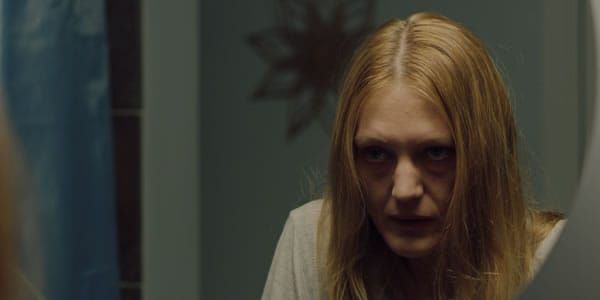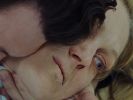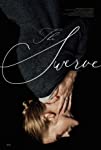Eye For Film >> Movies >> The Swerve (2018) Film Review
The Swerve
Reviewed by: Jennie Kermode

The last few years have seen an interesting shift in how cinema talks about women. The initial response to the #MeToo movement was a flood of 'gender swapped' films in which scripts had been rewritten to put women in leading roles. This worked well enough in as far as it went, and the onscreen world started to look a little more like the real one, but things got more interesting after screenwriters had time to develop stories which took into account, or directly explored, experiences specific to women's lives. 2020 has seen what looks like that start of a new wave of cinema focused on middle aged women, not present as sex objects or motherly advice-givers but simply as characters. Whilst there have always been films like this, they've increased in number and are starting to break through into popular mainstream and genre fare - including horror.
One of the standouts at this year's Frightfest, The Swerve falls squarely into psychological horror territory, taking in mental illness, the shadow of menopause, and the more oblique horrors of day to day existence as somebody who is seen, first and foremost, as a resource for others. It's a character study focused on Holly (Azura Skye), who is mother to two sons, teacher to a class of disinterested teenagers, and married to a man who depends on her in a similar way whilst hitting on younger women on the side. She's also daughter to a woman who has always disapproved of her and sister to another (Ashley Bell) with whom she feels she has been forced to compete. Would it be any wonder if she cracked someday and struck back?

Perhaps she does. Perhaps she has.
On top of her other problems, Holly suffers from insomnia. The medication she's been prescribed to combat it gives her vivid dreams. She's finding it increasingly difficult to distinguish them from reality. Her frustration takes form in a violent act that may or may not be real, filling her with sensations of guilt - but it isn't really this that drives the film, as small incidents eat away at her sanity. There's a mouse in her kitchen - the ultimate challenge to suburban order. Her husband doesn't see it as a serious problem. He doesn't talk to her much in general. When she shows sexual interest in him, he acts as if he finds it repellent. The only person who seems to find her desirable - and give her the chance to see herself that way - is one of her students.
Skye is stunning in the central role, immersing herself in the character. Looking about ten years older than she actually is, she seems constantly drawn, exhausted, as if the life is being sucked out of her. The brittle appearance of her face and body reflects her brittleness of Holly's emotional state, and yet it's hard to see this simply as a portrayal of a woman descending into madness because Holly's difficulty seems to stem not simply from becoming unsure about what's real, but from understanding some aspects of reality all too well. When she's finally ready to act, her choices may seem haphazard but there's an animal logic to them - she is finally addressing the world as it is, not the polite delusion that everybody else seems to want her to buy into.
Director Dean Kapsalis, remarkably assured with his début feature, is at his best when evoking the hollowness of day to day life: suffocating suburban interiors, a classroom full of dead-eyed teenagers, a supermarket which shows off the material abundance of a society that seems to offer no spiritual sustenance at all. Even the apple pie is not what it appears to be. In a lonely car park, Holly cries out to be seen. How shocking does her behaviour have to be before someone will notice her, before someone will reassure her that she still exists? To the extent that she's offered any support at all, t's all about helping her to fit in, helping her to cope. The real darkness at the heart of Kapsalis' film is the suggestion that it might not actually be Holly who is fundamentally broken.
Reviewed on: 21 Sep 2020















